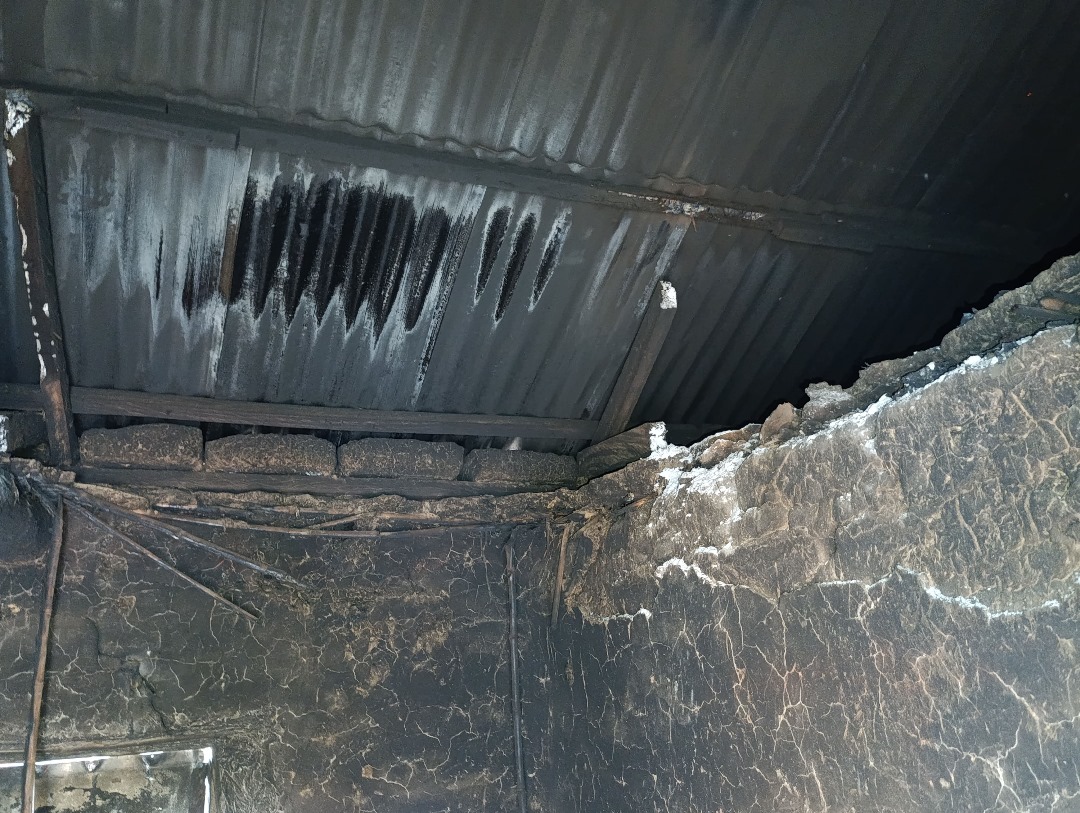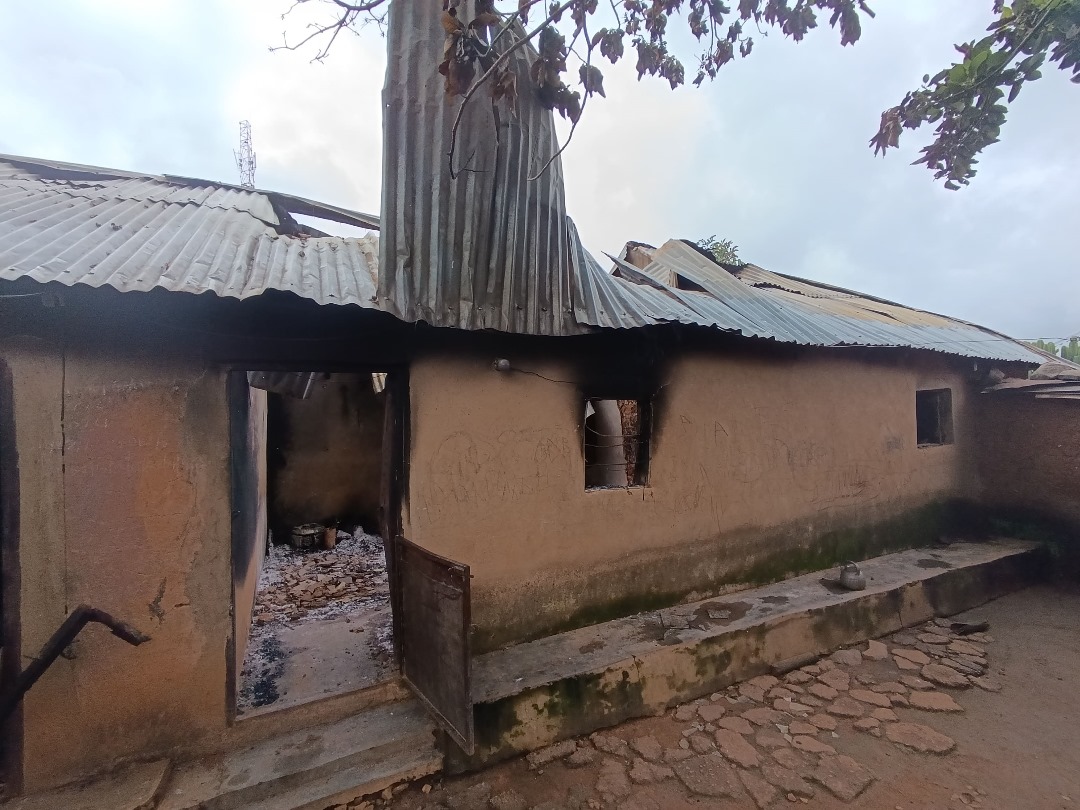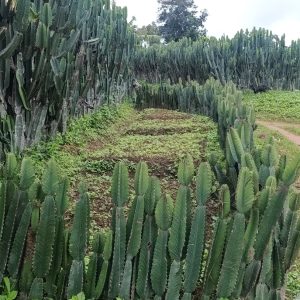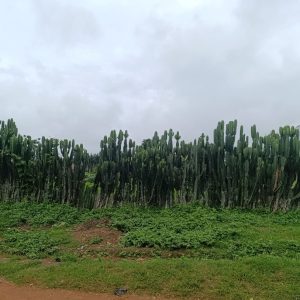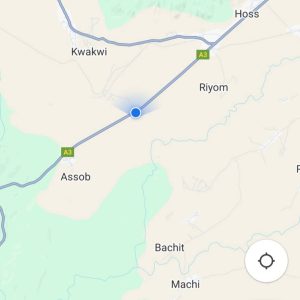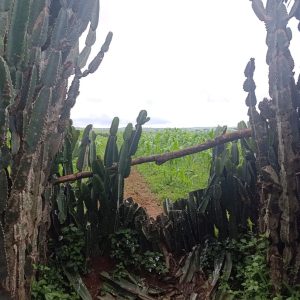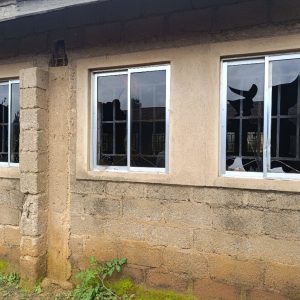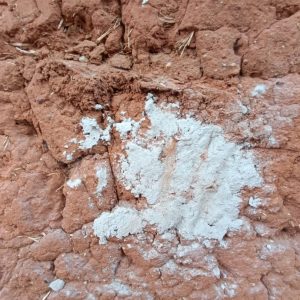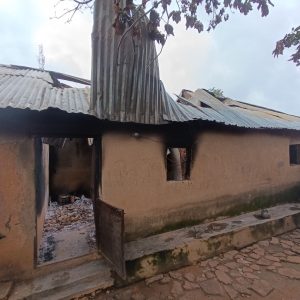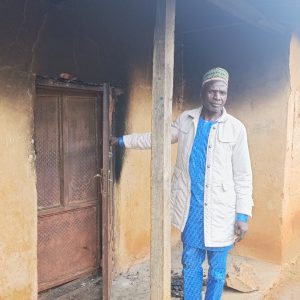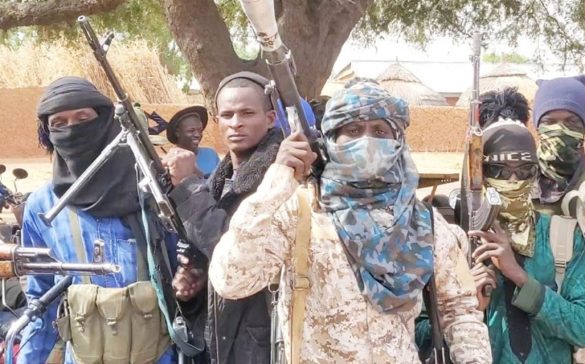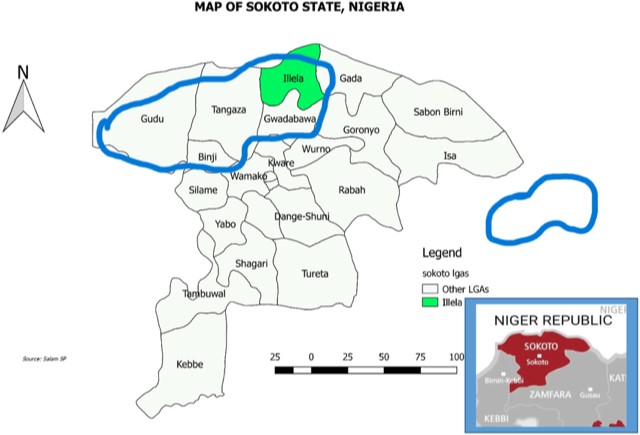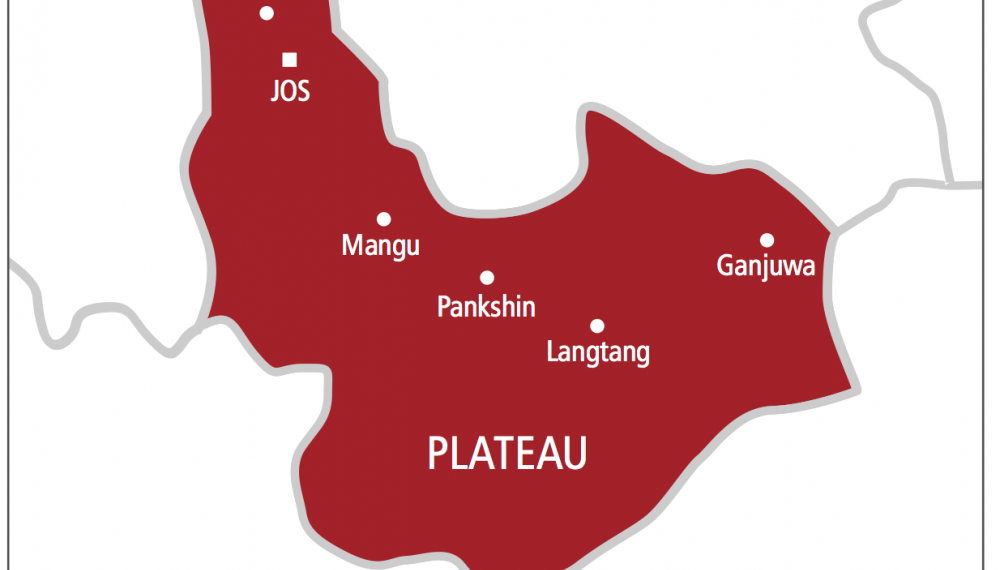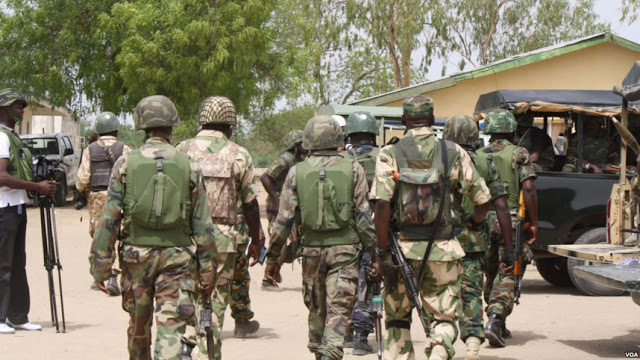INVESTIGATION: Military Commander’s Delay and the Army Bullet That Killed Riyom Youth Leader During July 15 Massacre
Part Two of Two-Part Investigation
By Middle Belt Times Investigative Team
The Suspicious Timing: Military Movements Under Scrutiny
The most damaging allegations against the Nigerian military emerged from eyewitness accounts of the attackers’ precise knowledge of military schedules. Rev. Davou Musa’s testimony to Middle Belt Times (MBT) revealed that the militants demonstrated an intimate understanding of when soldiers would arrive, information that raises serious questions about intelligence leaks or direct collaboration.
“There were 10 other people, mostly women, in the main building we ran out from,” Rev. Musa recounted, his voice heavy with the weight of survival guilt. “They slaughtered 9 people to death in the house; the 10th survived with serious injuries. When it was 5 am, they spoke in Fulfulde that ‘it is 5am, soldiers,’ meaning they knew exactly when the soldiers were going to show up in our community. And indeed, few minutes later the soldiers came in after over two hours of killings.”
Even more disturbing were reports from neighboring communities along the road who witnessed what appeared to be military facilitation of the attackers’ escape. Another resident of the community who pleaded anonymity told MBT that “some residents of neighboring communities on the road saw how the soldiers provided safe passage for the terrorists who had a truck to help them convey the items they looted from the community. They looted valuables such as mattresses, palm oil, Maggi cubes, goats, and other items.”
You can read part one of the investigation here.
Lt. Col. Thomas Paave: A Commander Under Fire
At the center of these allegations stands Lt. Col. Thomas Paave, commander of Sector 6 of Operation Safe Haven Joint Task Force in Riyom Local Government Area. Paave’s deployment to Riyom came after residents of attacked communities in Bokkos LGA complained about his “unprofessionalism” in the face of consistent attacks by armed Fulani militants, a pattern that would tragically repeat itself in Bindi.
The sector command headquarters, strategically positioned less than 4 miles from Bindi, should have enabled rapid response to the community’s distress. Instead, residents describe an inexplicable delay that cost lives. “The sector command headquarters is just nearby here in Riyom town, but they never showed up since they left our community around 7 pm, 8 hours before the July 15 attack,” Jambol Daniel, Bindi Youth Secretary, told MBT.
Daniel’s frustration was palpable as he continued: “Even if they were to walk on foot, it should not have taken them 20 minutes to get here, but the attack went on for over 2 hours before the soldiers from Sector 6 got here. We believe there was complicity on the part of the soldiers and their commander, who we later heard said that the attackers stopped the soldiers from coming to defend us during the attack.”
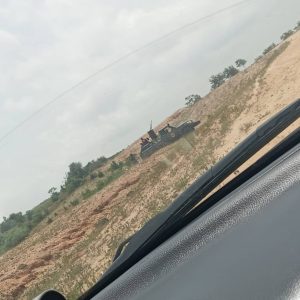
Soldiers of Operation Safe Heaven on Patrol in Riyom. Credit: MBT
Allegations of Military Involvement in Civilian Death
The Berom Youth Moulders-Association, in a statement issued on 25th July 2025, alleged that a soldier shot and killed the youth leader of Bindi during the July 15 attack. MBT investigation revealed that Bindi’s youth leader, Mr. Bitrus Garba, was shot and killed from behind while the attackers were still in the community.
A source in the community who pleaded anonymity told MBT: “They shot our youth leader, Bitrus through the back, he was facing the direction of the pastor’s house, he was backing the Abuja highway and some soldiers were standing there. We strongly believe that the shot that killed him came from the soldiers.”
“We found the expended bullet, and it reads the Nigerian army, how do you explain that? It is either the terrorists had weapons obtained from the military or the soldiers took part in killing our people.”
MBT could not independently verify this claim as efforts to have access to the recovered bullet shell which is said to be in Jos, proved abortive.
The Divided Response: Gallantry vs. Complicity
New evidence from the Berom Youth Moulders-Association (BYM) reveals a troubling contradiction in military response during the attack. While eyewitnesses commended the Unit Commander of Operation Safe Haven stationed at Sopp for their “gallantry role demonstrated in repelling the attackers from one end,” they simultaneously registered “loss of confidence in the reinforcement team” that positioned itself by the roadside where the massacre was perpetrated.
According to the BYM statement, this reinforcement team’s conduct was particularly damning: they “shot only 3 gunshots and nothing more during and after the Jebu massacre,” raising serious questions about their commitment to protecting civilian lives. The stark contrast between units, one fighting to protect civilians, another seemingly indifferent to their plight, suggests either catastrophic breakdown in command structure or deliberate sabotage.
The Implausible Excuse: Soldiers “Stopped” by Attackers
The claim that attackers could prevent Nigerian military personnel from responding to a distress call stretches credibility to its breaking point. For a well-equipped military force to be “stopped” by the same militants terrorizing a defenseless farming community raises fundamental questions about either military competence or complicity.
“The sector commander, Lt. Col Thomas said that the Fulani attackers prevented his soldiers from gaining access to protect us during the attack says Rev. Musa.
The two-hour window during which the attackers operated with apparent impunity, systematically destroying homes with explosives, killing 27 people, and looting community resources, suggests either a catastrophic failure of military protocol or deliberate negligence. The precise timing of the military’s eventual arrival, moments after the attackers had completed their mission and begun speaking about soldiers’ approach, points toward the latter.
Pre-Attack Intelligence: The Failure to Act
Multiple sources confirm that security agencies possessed prior intelligence about the planned attack, yet failed to prevent the massacre. Governor Mutfwang’s admission during his condolence visit that “intelligence reports about the impending attack had been received beforehand, yet no preventive action was taken” aligns with BYM’s more detailed account.
The youth association revealed that “security agents had prior knowledge of the planned attack as the Fulani and their cohorts, who are believed to be the hundreds hired bandits were seen moving in the midst of thousands Cows grazed on farmlands at Jebbu and neighbouring villages.” This intelligence failure becomes even more egregious given that a military checkpoint was positioned “not up to a kilometre away from Jebu.”
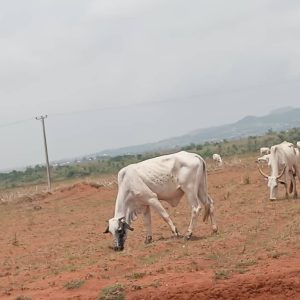
Cattle grazing in Bangai, Bachit district, a mile from Bindi. Credit: MBT
The Proximity Problem: Military Assets Unused
The BYM statement exposes a critical security failure that compounds allegations of complicity. The attack occurred in Bindi/Jebu village, which “lies by the roadside to Abuja and a military checkpoint of the Special Task Force (STF) not up to kilometre away from Jebu.” This proximity makes the military’s failure to respond even more inexplicable.
“The attackers did not drop from the sky,” the BYM statement pointedly noted. “They came with confidence, operated freely and left without challenge at the direction, where the reinforcement team deployed stationed itself like in previous cases recorded in some communities of Riyom.”
Governor’s Rhetoric vs. Reality: The Intelligence Failure
Plateau State Governor Caleb Mutfwang’s condolence visit to Bindi on July 16 revealed another layer of systemic failure. His admission during his condolence visit to the community that intelligence reports about the impending attack had been received beforehand, yet no preventive action was taken, underscores the disconnect between information gathering and protection of lives.
“It is very sad that we got intelligence for this attack, yet the attack still happened,” Governor Mutfwang stated during his visit. “I’m calling on the security agencies to redouble their efforts; we need to reappraise our strategy and tactics.”
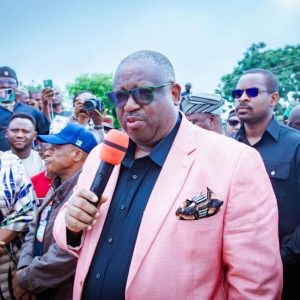
Gov. Caleb Mutfwang. Credit: Punch
The Governor’s call for accountability was unambiguous: “I’m calling on the security agencies to arrest the perpetrators, insisting that the era of ‘unknown gunmen’ must end. Can people come and attack people and kill them in their homes and we say they are not known? The perpetrators of the act must be arrested; the era of unknown gunmen is over.”
His message to security agencies carried an edge of frustration: “Let me remind our security agencies again, you are not here for peacekeeping; you are here to defend the lives and property of Nigerians. Anybody that is threatening the lives of Nigerians is an enemy of the state and must be dealt with accordingly.”
However, Governor Mutfwang’s words rang hollow for residents who had witnessed similar pronouncements following attacks in other communities. Mathias, a Bindi resident, expressed the community’s skepticism to MBT: “We have heard such comments from the governor over and over again in Bokkos, Bassa, and other communities in Riyom long before this madness reached our community. We want action, we want to see people being arrested and prosecuted. That is the only way to send a message to future terrorists who may be contemplating attacking communities.”
The BYM statement echoed this frustration, noting that the massacre was “debilitating the early trust we have built in the Operation Safe Haven-OPSH, which we had believed will continue working according to the matching order issued by President Bola Ahmed Tinubu that terrorist elements should be crushed.”
Systematic Terror: Beyond a Single Attack
The BYM revelation exposes the July 15 massacre as part of a broader campaign of systematic terror. While the attack was ongoing, “the same Fulani went on rampage of mass mow down of crops last night in Jol, Bachi, Rinyan and other places,” indicating coordination across multiple fronts.
This broader campaign involves “hundreds of the armed men brought in addition to the ones that have been on ground in places such as Fass, Mahanga, Shong, Rakweng, Sharu, Diyan-Hei, Hawan-Kibo, amongst others, where from the armed groups are reportedly stationed.” The scale and coordination suggest resources and planning far beyond spontaneous farmer-herder conflicts.
Command Changes and Security Adjustments
Following the July 15 massacre, Lt. Col. Thomas Paave was redeployed from Sector 6, Riyom and replaced by Lt. Col Isaac Indiorwhey. When MBT visited Bindi for the third time on July 29, Mobile Policemen were on ground providing security for the community.
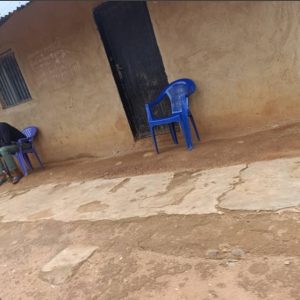
Mobile policemen stationed in Bindi. Credit: MBT
The deployment of mobile police reflects a pattern in Plateau State where communities under attack have previously called for replacement of soldiers with mobile police in their communities. In February 2024, following the Christmas attacks that claimed over 200 lives in Bokkos and neighbouring LGAs, residents of Bokkos expressed distrust for the Nigerian army and called for the deployment of mobile policemen.
“He has been redeployed and we are very happy,” Mathias told MBT regarding Paave’s removal. “We also hope they don’t send him to another local government in Plateau or anywhere facing insecurity in Nigeria because he lacks the professionalism required to handle such challenges.”
This concern reflects a systemic problem within Nigeria’s military hierarchy, where accountability often means reassignment rather than genuine consequences for failures that cost civilian lives.
Unanswered Questions and Urgent Demands
As Bindi attempts to rebuild from the ashes of July 15, critical questions remain unanswered:
- How did attackers obtain precise information about military movement schedules?
- Why was intelligence about the impending attack not acted upon?
- What investigation has been conducted into allegations of military complicity?
- Will the weapons used in the attack be traced to their sources?
- What measures are in place to prevent Lt. Col. Paave or similar commanders from failing other communities?
- Why did the reinforcement team fire only three gunshots during a two-hour massacre?
- How can the military explain the stark difference in response between different units?
- What investigation will be conducted into the death of youth leader Mr. Bitrus Garba and the recovered bullet allegedly bearing Nigerian army markings?
The residents of Bindi, like countless other Middle Belt communities before them, have presented specific allegations and evidence that they believe supports their claims of military complicity. Whether through incompetence or deliberate action, the security response during the July 15 attack fell far short of protecting civilian lives.
As Rev. Davou Musa, who lost nine family members but survived to tell their story, stated in his interview with MBT: “I believe God saved my life so I can tell the story of what truly happened.” His testimony, and that of other survivors, has been documented and now awaits official investigation and response.
The deaths of 27 people in Bindi have raised serious questions about military conduct and effectiveness in Plateau state. The community’s demands for accountability, investigation, and justice represent a test of Nigeria’s commitment to protecting its citizens and ensuring transparency in its security operations.
This investigation was conducted by Middle Belt Times through extensive interviews with survivors, eyewitnesses, and community leaders in Bindi village. Additional information was corroborated through statements from the Berom Youth Moulders-Association. All testimonies were independently verified where possible.


